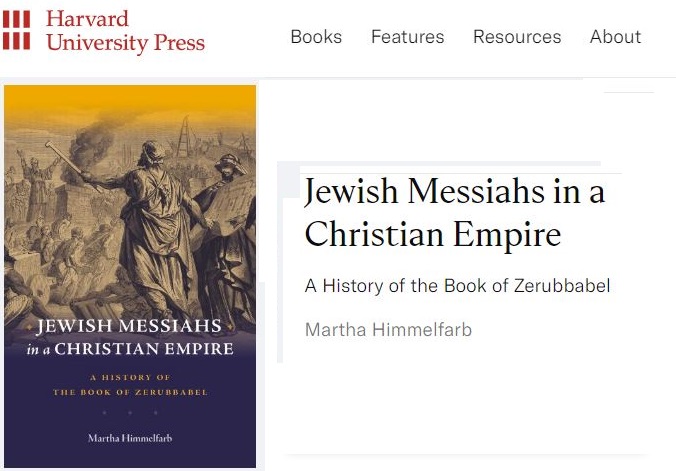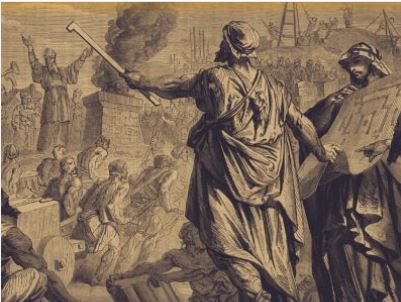 Between 100 BCE and 70 CE, numerous prophets and messiahs emerged among the Jewish people. This group included figures such as Judas the Galilean, the shepherd Athronges, Simon the Perean, a Samaritan messiah during the time of Pontius Pilate, Theudas, “the Egyptian,” Menahem ben Hezekiah, John the Baptist, and, notably, Jesus of Nazareth.
Between 100 BCE and 70 CE, numerous prophets and messiahs emerged among the Jewish people. This group included figures such as Judas the Galilean, the shepherd Athronges, Simon the Perean, a Samaritan messiah during the time of Pontius Pilate, Theudas, “the Egyptian,” Menahem ben Hezekiah, John the Baptist, and, notably, Jesus of Nazareth.
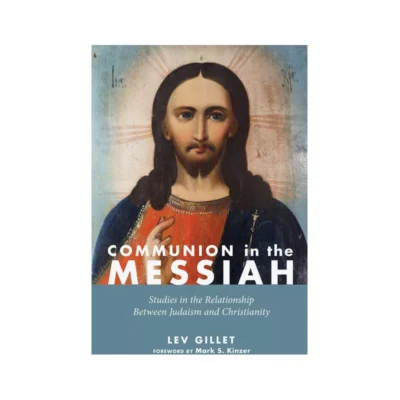 The following is from ‘Communion in the Messiah’ Studies in the Relatioship Between Judaism and Christianity, by Lev Gillet, Lutterworth Press, London and Redhill, Lutterworth Library, Vol XIV, Missionary Research Series, No. 3, 1942
The following is from ‘Communion in the Messiah’ Studies in the Relatioship Between Judaism and Christianity, by Lev Gillet, Lutterworth Press, London and Redhill, Lutterworth Library, Vol XIV, Missionary Research Series, No. 3, 1942
JEWISH MESSIAHS
The opening of the Christian era saw in Palestine a number of pretenders to Messiahship. We learn from Josephus about Theudas, about the Egyptian who gathered 30,000 people on the Mount of Olives, and about a third pretender who prepared to lead the people into the wilderness; in these three cases the Messianic followers were killed by the Roman soldiery. Menahem, under Agrippa II, was successful in capturing the fortress Antonia, but jealous colleagues assassinated him. Bar Kochba, who did not style himself Messiah but was hailed as such by the “sages,” gathered an army of half a million men, was proclaimed king, and held Jerusalem for three years; the Romans defeated and killed him in 135. The results of this adventure discouraged personations of the Messiah till the fifth century: then there appeared in Crete a certain Moses who led a crowd of enthusiasts into the sea, promising to take them dry-shod to the mainland ; many were drowned, the others rescued, and Moses disappeared. Abu Isa (seventh century) fought against the Arabs, was slain in battle, and gave his name to the sect of the Isavites. One of his disciples, Yugdan, was also considered as Messiah and immortal.
A few minor Messiahs arose in the West. David Alroy (12th century), hero of Disraeli’s novel The Wondrous Tale of Alroy, was of far greater importance. Coming from Persia, he collected a large following, proclaimed himself Messiah, and raised the standard of revolt against the Sultan. He was killed in a battle, but his cult continued for many years. Abulafia (13th century) is better known as a cabbalist than as a Messianic pretender; he came to Rome, where he attempted to convert the Pope to Judaism, escaped from the imprisonment in which his boldness had involved him, proclaimed himself Messiah in Sicily, announced the millennium for 1290, and then disappeared.
Some minor pretenders—Botarel of Cisneros, Jacob Carcasoni, Nissim of Avila, Asher Lammlein (whose eschatological teaching was accepted by many Christians)—mark the transition between the Middle Ages and the 16th century. David Reubeni arrived at Venice in 1524, coming mysteriously from the East; he claimed to be brother of an Oriental king, begged the assistance of the Pope and the King of Portugal in a war with the Sultan, was considered by the Jews as a semi-divinity, then became compromised in the stormy adventures of his disciple Molkho ; he went with him to Germany, where they attempted to convert Charles V to Judaism, and were arrested. Reubeni was taken to Spain and seems to have died at the hands of the Inquisition. Solomon Molkho is a no less extraordinary figure. A Christian of Jewish descent and stirred by Reubeni’s influence, the gifted young man Diogo Pires reverted to his ancestral Judaism under the name of Molkho. Having left Portugal for Turkey, he collected around him people who considered him as a prophet and as almost divine ; then he came to Rome, had visions, foretold events which subsequently occurred, won the Pope’s favour, and became “ the Jewish Savonarola.” But his own Jewish enemies secured his arrest by the Inquisition as a renegade Christian. Condemned to be burned, he was, by the Pope’s orders, hidden within the papal apartments and smuggled out of Rome. He thereupon rejoined Reubeni and they started on their unlucky German journey. Put into chains and carried to Mantua, Molkho was again tried by the Inquisition and sentenced to death. He rejected a pardon offered him on condition that he ‘ returned to Christianity. He obtained (1532) the martyr’s crown which he had longed for all his life. He published (1529) a collection of addresses under the title The Book of Wonder. Isaac Luria (4-1572), Hayyim Vital (4-1620), Abraham Shalom (c. 1574) were also looked upon as Messiahs.
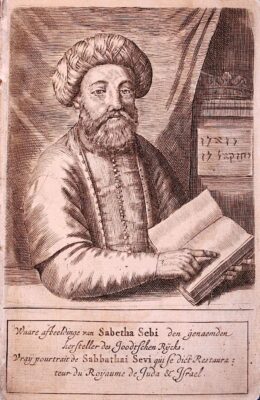 The most influential of all the pretenders was Shabbathai Sebi (c. 1621-1676). Born at Smyrna, noted for his physical beauty, he acquired a considerable reputation as a cabbalist and revealed himself as the Messiah. The rabbis excommunicated him. He went to Constantinople and Salonica, wandered about the Orient, spent two years in Cairo, reached Jerusalem and announced the opening of the Messianic Age for 1666. This prophecy was promulgated throughout the whole world. When the pretender returned to Smyrna, his journey took the form of a triumphal progress. The local Jewish community acknowledged him as their sole ruler. Even from the North Sea ports, tributes poured in upon the “ King of Kings.” He was hailed as the Messiah in many synagogues. Some Christians themselves believed in his mission. Prophets arose everywhere and blessed his name. The Sultan imprisoned him in Constantinople and, later on, in Abydos. When he was removed to Adrianople he embraced Mohammedanism, without abandoning his Messianic claims. He became one of the Sultan’s doorkeepers and founded the Judaeo-Islamic sect of the Donmeh, which still exists. He fell into disgrace and died at Dulcigno. Most Jews repented bitterly of their support of the movement.
The most influential of all the pretenders was Shabbathai Sebi (c. 1621-1676). Born at Smyrna, noted for his physical beauty, he acquired a considerable reputation as a cabbalist and revealed himself as the Messiah. The rabbis excommunicated him. He went to Constantinople and Salonica, wandered about the Orient, spent two years in Cairo, reached Jerusalem and announced the opening of the Messianic Age for 1666. This prophecy was promulgated throughout the whole world. When the pretender returned to Smyrna, his journey took the form of a triumphal progress. The local Jewish community acknowledged him as their sole ruler. Even from the North Sea ports, tributes poured in upon the “ King of Kings.” He was hailed as the Messiah in many synagogues. Some Christians themselves believed in his mission. Prophets arose everywhere and blessed his name. The Sultan imprisoned him in Constantinople and, later on, in Abydos. When he was removed to Adrianople he embraced Mohammedanism, without abandoning his Messianic claims. He became one of the Sultan’s doorkeepers and founded the Judaeo-Islamic sect of the Donmeh, which still exists. He fell into disgrace and died at Dulcigno. Most Jews repented bitterly of their support of the movement.
Half a dozen petty Messiahs (e.g. Querido, Cardoso) succeeded Shabbathai. Jacob Frank (1726-1791), born in Poland, claimed to be the re-incarnation of all the former prophets and Messiahs. The Frankists opposed the Talmudists and found friends in the Roman hierarchy. Frank accepted baptism. He was nevertheless imprisoned for thirteen years on a charge of heresy. Liberated by the Russian invasion, he lived—latterly as the baron of Offenbach— in various capitals, with a vast income supplied by his adherents. Moses Hayyim Luzzato (1707-1747), a cultured, mystical and wealthy Italian poet, who died in Palestine, was one of the last men whom any considerable section of Jewry accepted as
It would be a great mistake to consider all these people as impostors. Frank was perhaps the only unmitigated charlatan. Shabbathai himself seems to have been, to a certain extent, a genuine seeker of God. We must remember that some of these men were hailed as Messiahs against their own wish by their enraptured followers. Neither Molkho nor Reubeni ever claimed Messiahship. Moreover there existed a belief in an Ephraimitic Messiah or a Messiah ben Joseph who was to be the forerunner of the Davidic Messiah. Among the Messianic pretenders, there were many who did not claim to be more than forerunners. Jewish Messianism is an extensive and collective notion ; it is easy to conceive oneself as having a share in Messiahship without being the Messiah Himself.
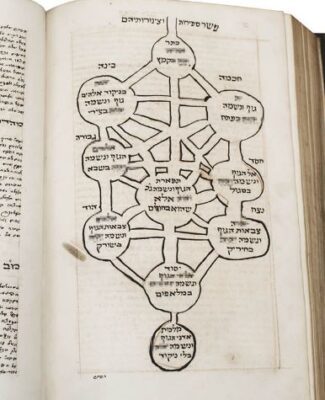 Such was the position of Isaac Luria (rabbi and mystic in Safed and is considered the father of contemporary Kabbalah)and Hayyim Vital, these evidently sincere mystics. Luzzato was a rather pathetic victim of his own delusions, with some attributes of genuine saintliness.
Such was the position of Isaac Luria (rabbi and mystic in Safed and is considered the father of contemporary Kabbalah)and Hayyim Vital, these evidently sincere mystics. Luzzato was a rather pathetic victim of his own delusions, with some attributes of genuine saintliness.
Little has been written on the general subject of the Jewish Messiahs, though there are detailed studies on the individual pretenders. As early as 1697 Johannes a Lent published a Schediasma historicophilologicum de Judaeorum Pseudo-Messiis. The articles Pseudo-Messiahs by G. H. Friedmann in the Jewish Encycl., vol. X, and Messiahs (Pseudo) by A. M. Hyamson in Hastings’ Encycl. for Rel. and Ethics, vol. VIII, give a resume of the subject.
See : on Molkho and Reubeni, E. Adler, Auto de Fe and Jew, London 1908; on Shabbathai, A. Freimann, Sammelband kleinen Schriften uber Sabbathai Zebi und Seine Anhdnger, Berlin 1912 ; on Frank, H. Graetz, Frank und die Frankisten, Breslau 1868 ; on Luzzato, Autobiografia di S. D. Luzzato, Padua 1882.
Further study
